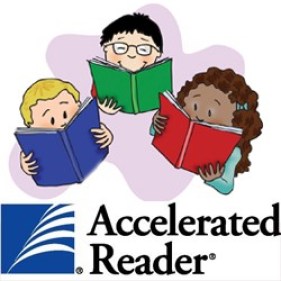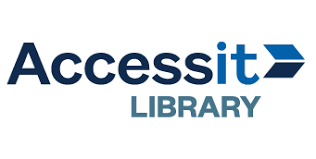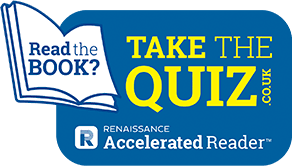Let's Get Reading
Recommended Reads AR Level 3-4
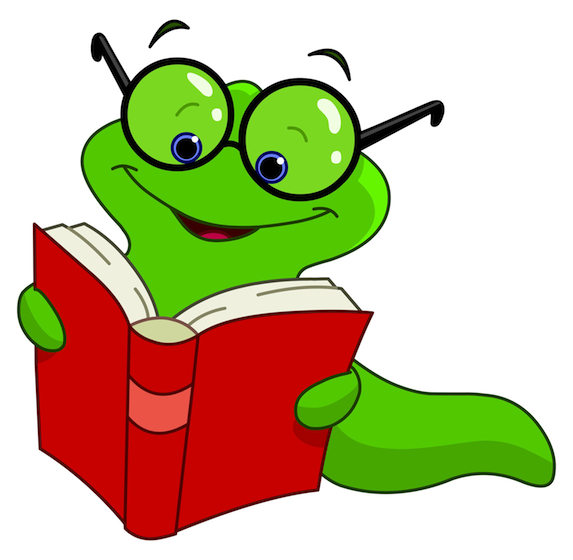
Recommended Reads AR Levels 4+
At St Michael’s we are passionate about creating lifelong readers. We are often asked for book recommendations and have pulled together this list of some of the top titles we recommend children read during years 5 and 6. They have been hand-picked by us as a team according to a number of key criteria including popularity, diversity, range across genres, and classic reads. We believe there is something here for everyone! We have also included some useful resources to support you and your child with their reading further. We hope you find this useful!
The Year 5 and 6 teams.
Useful resources for finding other books
Search our school's online library, read reviews and recommendations.
Open the guest page via this link-
https://uk.accessit.online/stm41/#!dashboard
Fabulous book search feature from the UK's largest reading charity; its aim is to help
develop a love of reading-
https://www.booktrust.org.uk/books-and-reading/bookfinder/
A fantastic recommendation site for children’s books, including by age & genre-
https://www.lovereading4kids.co.uk/
Find a book that links into our Accelerated Reader scheme
https://www.arbookfind.co.uk/
To support our vision at St Michael’s of developing lifelong readers, we subscribe to Accelerated Reader, which is a reading programme designed to promote independent reading. We believe it is an invaluable tool to foster a love of reading when used in conjunction with support from teachers, parents, our resident librarian and book recommendations from peers.
This page contains information about Accelerated Reader, strategies you may adopt to support your child with their reading practice at home and guidance on helping your child choose a book. We hope you find it useful!
Our new online library system integrates with our Accelerated Reader system,
you can access it here.
Are there any free books or access to reading material online?
To support your child during these times, please find attached a list of resources showing where you can access free reading material online. We hope you find it useful!
How can I support my child with their reading at home?
Here are some useful tips to support your child with their reading:
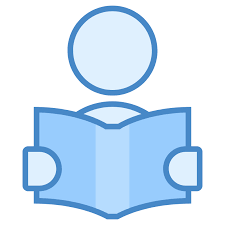 Establish a good routine to support your child reading for 15-20 minutes a day – often just before bed works well. The act of daily reading really matters. Young children who read or are read to can be exposed to up to a million more words a year than those who do not.
Establish a good routine to support your child reading for 15-20 minutes a day – often just before bed works well. The act of daily reading really matters. Young children who read or are read to can be exposed to up to a million more words a year than those who do not.
 Shared reading – for those children who may struggle to read independently, or lack the motivation to do so, shared reading can be an excellent strategy. Take it in turns to read a paragraph or page each and discuss the book as you go. Adapt the amount you read versus the amount your child reads depending on how tired and willing they are. This can eventually progress to independent reading side by side so that the experience can still be shared. Let them see you reading. Essentially the more you can model the importance and value of reading to them, the more likely they are to want to read themselves.
Shared reading – for those children who may struggle to read independently, or lack the motivation to do so, shared reading can be an excellent strategy. Take it in turns to read a paragraph or page each and discuss the book as you go. Adapt the amount you read versus the amount your child reads depending on how tired and willing they are. This can eventually progress to independent reading side by side so that the experience can still be shared. Let them see you reading. Essentially the more you can model the importance and value of reading to them, the more likely they are to want to read themselves.
 Explore new vocabulary together. Have fun trying to work out what unknown words mean by exploring them in context. Encourage your child to ‘read around’ the word and see if that helps. Are there clues in the sentence that indicate what the word may be? Is there a prefix at the start of the word they have seen before which may help them decipher the meaning e.g. ‘un-’ or ‘mis-‘? Is there a suffix at the end of the word which could help? Can they substitute it with another word and see if the sentence still makes sense? Model using a dictionary to check for the meaning of unknown words.
Explore new vocabulary together. Have fun trying to work out what unknown words mean by exploring them in context. Encourage your child to ‘read around’ the word and see if that helps. Are there clues in the sentence that indicate what the word may be? Is there a prefix at the start of the word they have seen before which may help them decipher the meaning e.g. ‘un-’ or ‘mis-‘? Is there a suffix at the end of the word which could help? Can they substitute it with another word and see if the sentence still makes sense? Model using a dictionary to check for the meaning of unknown words.
 Ask relevant questions. You don’t even need to have read your child’s book or be familiar with it to be able to do this. Starting a conversation about the book is a fabulous way of engaging your child, getting them to demonstrate their comprehension and giving them the opportunity to formulate and express an opinion. All of this is excellent practice. Here are some questions you could try asking:
Ask relevant questions. You don’t even need to have read your child’s book or be familiar with it to be able to do this. Starting a conversation about the book is a fabulous way of engaging your child, getting them to demonstrate their comprehension and giving them the opportunity to formulate and express an opinion. All of this is excellent practice. Here are some questions you could try asking:

If you could ask the author a question about the book you are reading, what would you ask?
Good practice for -Helping your child engage with the text they are reading.

If you could meet one of the characters in this book, what would you want to ask them and why?Formulating questions will help your child clarify what they are reading and give them a better understanding of the text

What do you think is going to happen to the main character? What makes you think this?
Good practice for -Predicting and drawing inference

Can you show me something in the text that makes you think this?
Good practice for -Giving evidence based on what has been read

Tell me something that has happened so far.How did the character react to this? Why do you think they reacted in such a way?
Good practice for -Summarising, drawing inference and giving evidence

Based on what you know about the character so far, how do you think the author will develop the story?
Good practice for -Predicting

Thinking about the page/chapter you’ve just read, can you find any words & phrases that show how the character is feeling?
Good practice for -Identifying how language, structure and presentation contribute to meaning

Can you pick out a descriptive phrase and explain why the writer chose to write in that way?
Good practice for -Identifying how language, structure and presentation contribute to meaning

Challenge question:
How else could they have written it?
What impact would that have had on the reader?
How is my child’s reading level assessed for Accelerated Reader?
Your child’s reading age is assessed via an online quiz (a Star Reading test) which uses computer-adaptive technology. Questions continually adjust to your child’s responses. If your child’s response is correct, the difficulty level is increased. If your child misses a question, the difficulty level is reduced. The test uses multiplechoice questions and takes approximately 15 minutes. At the end of the assessment, your child is given a recommended book level and is free to choose their own books.
How does Accelerated Reader work?
Once assessed, your child picks a book at their own level and reads it at their own pace, rather than having one assigned to them. This makes reading a much more enjoyable experience as they can choose books that are interesting to them.
Teachers and our librarian can of course use their own professional judgment to support your child in choosing books at an appropriate readability level that are challenging without being frustrating.
When finished, your child takes a short quiz on the computer (passing the quiz is an indication that your child understood what was read). Accelerated Reader gives children, teachers, and librarians feedback based on the quiz results, which the teacher then uses to help your child set goals and direct ongoing reading practice.
What happens if my child doesn’t pass an Accelerated Reader quiz?
If your child does not do well on the quiz, the teacher or librarian may help your child by:
- Reviewing their book choice – did they choose one at the right level, for example?
- Supporting your child with practice questions while they are reading, and before they take their next quiz.
- Sitting with them while they do their next quiz.
- Checking whether they are quizzing on a book they have recently finished reading – we recommend quizzing within 24 hours wherever possible so that the book is fresh in their mind.
In most cases, children really enjoy taking the quizzes. Since they’re reading books at their reading and interest levels, they are likely to be successful. This is satisfying for most children. Best of all, they learn and grow at their own pace.
What if my child doesn't like reading?
Using Accelerated Reader, your child will choose the books they want to read. Their teacher or our librarian will make certain the book is at the right level so that after completing the book, your child should do well on the Accelerated Reader Reading Practice Quiz. Success on the quiz will encourage your child to read more. With guidance from their teacher or librarian, and success, even students who say they don’t like reading are more likely to develop a love of reading!
How can I help my child find books that are interesting to them?
You can visit ARrbookfind.co.uk and click on Advanced Search. By conducting an advanced search, you can generate book lists that contain titles based on the criteria you enter such as book level, topic, interest level, fiction/non-fiction, etc. Please note that we do not have access to all books and quizzes at St Michael’s. If you are not sure, please ask your child to ask their tutor or our librarian to check.
Our new online library system integrates with our Accelerated Reader system, you can access it here.
- Booktrust.org.uk- Fabulous book search feature from the UK's largest reading charity; its aim is to help develop a love of reading.
- Lovereading4kids.co.uk - A fantastic recommendation site for children’s books, including by age & genre.
What is a Zone of Proximal Development (ZPD)?
In independent literature-based reading, ZPD is the range of books that will challenge a child without causing frustration or loss of motivation. Your child will receive a ZPD range after taking a Star Reading test, or teachers and our librarian can use their best professional judgment to determine a ZPD. The ZPD and the GE (Grade Equivalent) score from the Star Reading test will show up in Accelerated Reader, making it easier for teachers and librarians to set goals for students. It’s important for children to read with a high degree of comprehension and within their ZPDs. ZPDs should be adjusted based on the needs of your child.
What are points?
Every book that has an Accelerated Reader Reading Practice Quiz is given a point value. Points are computed based on the difficulty of the book (ATOS readability level) and the length of the book (number of words).
Children earn points, or a portion of a book’s points, depending on how well they do on the Reading Practice Quiz. For example, a child who takes a 5-question quiz on a book worth 1 point will earn 1 point for 5 correct answers (100%), 0.8 point for 4 correct answers (80%), etc. A child who reads a book worth 5 points and takes a 10-question quiz will earn 5 points for 10 correct answers (100%), 4.5 points for 9 correct answers (90%), etc. For quizzes with 3, 5, or 10 questions, a child needs to pass a quiz with a score of 60% or higher to earn points. For quizzes with 20 questions, a child needs to pass with a score of 70% or higher to earn points.
How many Accelerated Reader quizzes are there?
What kind of quizzes are there?
Accelerated Reader includes several types of quizzes designed to support the development of several reading skills.
Quiz types include:
- Reading Practice Quizzes are the most common type of assessment in Accelerated Reader. The purpose of these quizzes is to determine whether your child has read a book, to measure literal comprehension of the book, and to provide immediate feedback. Each Reading Practice Quiz consists of 3, 5, 10, or 20 multiple-choice questions depending on book level and length.
- Recorded Voice Quizzes are designed for beginning readers and students learning English. They are professionally recorded by a narrator who reads the quiz questions and answer choices as they appear on screen.
- Vocabulary Practice Quizzes measure a child’s command of vocabulary words encountered while reading. They are designed to reinforce vocabulary acquisition, assist with individualizing vocabulary instruction, and generate your child’s interest in words through authentic, in-context literature experiences. Quizzes include 5, 10, or 15 words from a particular book as well as review words from previously read books.
- Literacy Skills Quizzes are designed to give your child’s teacher information on specific reading skills. Questions are randomly generated from a 36- or 60-item bank, resulting in 12 or 24 quiz questions.
How will I know if a book has an Accelerated Reader quiz?
The Accelerated Reader Bookfinder™ will enable you to conduct a search of all available books with Accelerated Reader quizzes. Please note that we do not have access to all books and quizzes at St Michael’s. If you are not sure, please ask your child to ask their tutor or the librarian to check.
Example Accelerated Reader Quiz
Our new online library system integrates with our Accelerated Reader system, this will be available soon.
Is it OK for my child to read a book that does not have an Accelerated Reader quiz?
Is it OK for my child to read outside of their reading level?
Just because a child can read the words in a book doesn’t mean the content is appropriate. The interest level of the material must be considered. Interest level is based on content—a book’s themes and ideas—and indicates for which age group a book is appropriate. In many cases, a book’s interest level coordinates with its book level.
My child already does well in school. Why do they need this?
Even if a child is gifted at playing a musical instrument, they have to practise to develop their talent. Bright children, like all children, need to be challenged. Teachers using
Accelerated Reader software in their classrooms find it easy to guide each student to books that give the child both challenge and success, regardless of the child’s level.
My child is not a strong reader. Can they still use Accelerated Reader?
Accelerated Reader helps all children become better readers, from students with special needs to those who are gifted and talented. When children read books at an appropriate level, they experience success. Furthermore, teachers and librarians work with children to set appropriate goals based on each child’s reading level.


